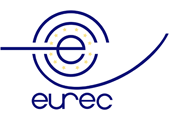menu
- Home
- National Information
- EC-Activities
- EUREC-Activities
- Legislation
- Training Materials
- Literature
- Events
- Newsletter
supported by:

Eurecnet - Training material details
Training material details
Ethics of new reproductive technologies. Cases and questions (Teaching ethics: Material for practitioner education (TEMPE))
Author(s): Dooley, Dolores; McCarthy, Joan
Document type: Book
Year: 2003
Pages: 214
Source: Publishing house: Berghahn Books (New York, Oxford)
Language(s): English
Classification
National background: European UnionCategory: EU Training Material for Research Ethics
Subject areas: Biotechnology; Conflict of interest; Embryo research, stem cell research; Information (data protection, privacy etc.)
Focus: Sub-focus: embedded in new reproductive technologies
Content: Case studies; Important codes; Legal background
Issues touched: Autonomy, respect, informed consent, subjects unable to consent, role of representatives Beneficence, non-maleficence, risk for the subject Justice, benefits/burdens, research without benefit for the subject, placebos/standard therapy Protection of privacy, data protection, biological material Vulnerable groups, soldiers, prisoners, pregnant women, elderly people Social impact of research, economic benefits, risks for third parties Social background of research, conflicts of interest, researcher vs. doctor, commercialisation Ethics committees, research protocols Publication of unethical trials
Audience: practitioners
Classification remarks: Material dedicated to teaching ethics with a focus on the bioethics of new reproductive technologies. The subtitel "Cases and Questions" is descriptive of the didactical concept of this first volume of a series of three. Only one of the 8 chapters explicitly addresses research ethics. The appendix contains a table of European transnational legislation concerning reproductive technology.
Estimation
Theoretical quality remarks: As the subtitle "Cases and Questions" suggests, this book with its 8 chapters is largely built around case studies that help to elucidate different problems in the context of reproductive technologies. The legal background is touched with an overview table containig the legislation in the different countries of the EU. Important codes are addressed. Ethical theories are not discussed in depth but are referred to where applicable.Didactical quality: Didactically prepared material
Didactical quality remarks: Dedicated teaching material with a focus on reproductive technology. With case studies, questions and activity text boxes. All chapters start with the educational objectives and end with a summary. Background and open questions are discussed.
Overall estimation: recommendable
Estimation remarks: A well written, didactically well prepared book that is built around case studies. The issues covered in this book are practical considerations of the clinical work of new reproductive technologies, the focus is only partly on research ethics.
